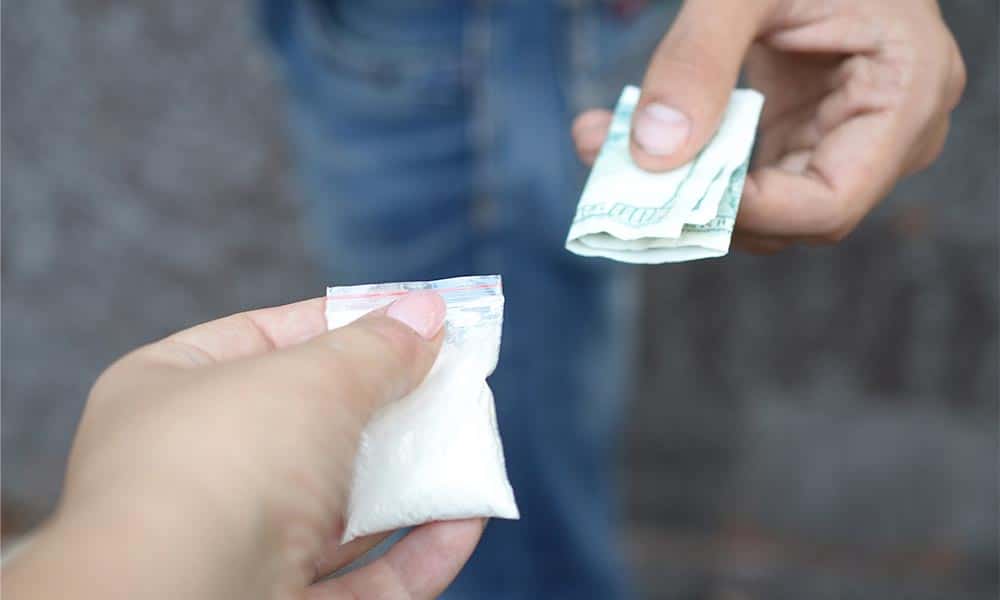Cocaine Overdose Symptoms: When to Get Help

- Cocaine overdose is a life-threatening medical emergency that can occur suddenly and without warning, causing symptoms like chest pain, seizures, difficulty breathing, and cardiac arrest within minutes.
- The drug affects the cardiovascular and nervous systems so severely that it can cause a heart attack, stroke, or complete organ failure even in healthy people using cocaine for the first time.
- Managing cocaine overdose requires immediate emergency medical intervention, as there is no safe amount of cocaine, and mixing it with other substances like alcohol or opioids dramatically increases the risk of fatal overdose.
Cocaine overdose is a medical emergency that can happen to anyone using the drug, whether it’s their first time or they’ve been using it for years. Unlike some substances where overdose develops gradually, cocaine can cause life-threatening symptoms within minutes of use, including heart attack, stroke, seizures, and respiratory failure. The unpredictable nature of street cocaine, combined with the drug’s powerful effects on the heart and brain, makes every use potentially dangerous.
Cocaine Overdose: The Basics
Cocaine overdose occurs when someone takes enough of the drug to cause toxic effects that overwhelm the body’s ability to function normally.[1] The drug directly affects the cardiovascular and nervous systems, causing dangerous spikes in heart rate, blood pressure, and body temperature.
The risk factors for cocaine overdose include using large amounts, mixing cocaine with other substances like alcohol or opioids, and individual sensitivity that can vary from person to person.[2] People with underlying heart conditions, high blood pressure, or mental health issues face higher risks, but even healthy people can overdose on their first use. The purity and composition of street cocaine is unpredictable, meaning users never know exactly what they’re taking or how their body will react.
Cocaine overdose symptoms can be both physical and psychological, ranging from chest pain and difficulty breathing to extreme agitation and paranoia. The drug’s effects on the brain can cause seizures, strokes, or complete cardiovascular collapse within minutes. Because cocaine blocks sodium channels in the heart and constricts blood vessels throughout the body, overdose can quickly become fatal without immediate medical intervention.
The Primary Symptoms of Cocaine Overdose
Recognizing cocaine overdose symptoms is crucial because this medical emergency requires immediate intervention to prevent death or permanent damage. The symptoms can appear suddenly and progress rapidly, affecting multiple body systems simultaneously:[3]
- Chest pain: Sharp, crushing pain that may indicate a heart attack or cardiac arrest
- Difficulty breathing: Shortness of breath, rapid breathing, or complete respiratory failure
- Seizures: Uncontrolled muscle contractions or convulsions throughout the body
- Extreme agitation: Violent behavior, confusion, or uncontrollable restlessness
- High body temperature: Dangerous hyperthermia with profuse sweating
- Rapid or irregular heartbeat: Heart racing, skipping beats, or stopping entirely
- Severe headache: Intense head pain that may signal stroke or brain hemorrhage
- Nausea and vomiting: Persistent stomach upset that can lead to choking
- Dilated pupils: Eyes appear abnormally large and don’t respond to light
- Paranoia and hallucinations: Seeing or hearing things that aren’t there, extreme fear
- Loss of consciousness: Fainting, unresponsiveness, or coma
- Stroke symptoms: Slurred speech, facial drooping, or paralysis on one side of the body
How is an Overdose Different Than Intoxication?
Cocaine intoxication and overdose represent different points on a spectrum of drug effects, with overdose being a life-threatening medical emergency that goes far beyond typical intoxication symptoms.[4] Regular cocaine intoxication might include euphoria, increased energy, talkativeness, and mild increases in heart rate and blood pressure that the body can still handle. These effects, while dangerous, don’t immediately threaten life and may feel manageable to the person using the drug.
The transition from intoxication to overdose can happen rapidly and without warning. Someone might feel fine one moment and experience a heart attack or stroke the next, especially if they take additional doses or mix cocaine with other substances.
Can a Cocaine Overdose Be Lethal?
Yes, cocaine overdose can absolutely be lethal and is considered one of the most dangerous drug emergencies. The drug causes multiple life-threatening complications that can kill within minutes, including heart attack, stroke, seizures, and complete respiratory failure.[5] Cocaine’s effects on the cardiovascular system are particularly deadly – it can cause the heart to beat irregularly, stop completely, or trigger a massive heart attack even in young, healthy people with no history of heart problems.
The drug also causes severe constriction of blood vessels throughout the body, which can lead to strokes when blood flow to the brain is cut off. Cocaine raises body temperature to dangerous levels, potentially causing organ failure, and can trigger seizures that result in permanent brain damage or death. The combination of these effects makes cocaine overdose unpredictable and extremely dangerous, as multiple organ systems can fail simultaneously.
Statistics show that cocaine-related deaths have been increasing, particularly when the drug is mixed with other substances like fentanyl or alcohol. Even people who have used cocaine many times before can suddenly overdose and die, as there’s no way to predict how the body will react to any given dose.
How to Manage a Cocaine Overdose
Managing a cocaine overdose requires emergency medical intervention — this is not a situation that can be safely handled at home. While waiting for paramedics to arrive, there are some critical steps that can help keep the person alive and prevent further complications:
- Call 911 immediately: Cocaine overdose is a medical emergency that requires professional treatment within minutes
- Stay with the person: Never leave someone alone during a cocaine overdose, as their condition can deteriorate rapidly
- Check breathing and pulse: Monitor vital signs and be prepared to perform CPR if breathing or heartbeat stops
- Keep them calm and still: Try to prevent the person from moving around, as physical activity can worsen heart problems
- Cool them down: Remove excess clothing and use cool, wet cloths to lower dangerous body temperature
- Position them safely: If conscious, keep them sitting up; if unconscious, place them in the recovery position (on your side to keep the airway open)
- Clear the airway: Remove any objects from their mouth and ensure their tongue isn’t blocking breathing
- Don’t give food or water: The person may vomit and choke, especially if they’re losing consciousness
- Provide information to paramedics: Tell emergency responders exactly what drugs were taken and when
- Don’t try to make them vomit: This can cause choking and won’t help remove cocaine from their system
Stay calm yourself: Your composure enables you to respond effectively and keeps the situation from escalating
Frequently Asked Questions About Cocaine Overdose

